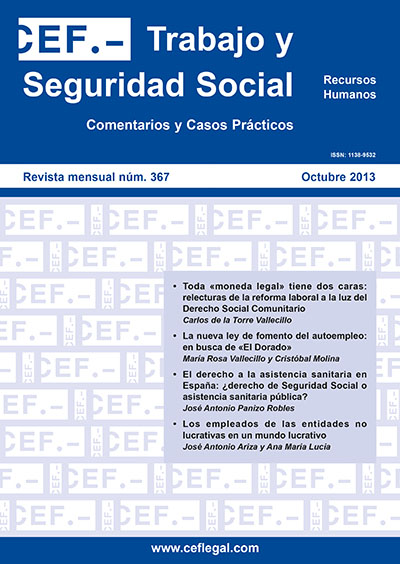All «legal tender» has two faces: the labour reform reinterpretations in the light of the Community Social Law
DOI:
https://doi.org/10.51302/rtss.2013.3178Keywords:
judicial taxes, Social European Law, judicial equity, art of LawAbstract
The 2012 labour reform has wanted to untie the regulation of labour relations in Spain in many of the own rules representations of a legal order more comprehensive and coherent, so that the new word of the legislator, in defense of the production function of the wage labour, became almost the only relevant. The recognition of the «law authority» above other, its explain appealing to another «higher authority», the economic and monetary policy in the European Union.
However, the judges of the Social answer this claim of exclusivity and isolation precisely by appealing to that other transnational «higher legal authority», but not in its economistic version but more markedly in the social, integrating the content of the national legal texts with the transnational norms and principles, particularly in Europe, through the construction of the Court of Justice of the European Union. The purpose of this study is to highlight a number of aspects of the labour reform that collide in a direct way with the Community Social Law and that, consequently, require revision, either through a corrective interpretation of legal texts well of an interpretation even ban these devices of the same, by virtue of the principle of the primacy of Community Law.



















